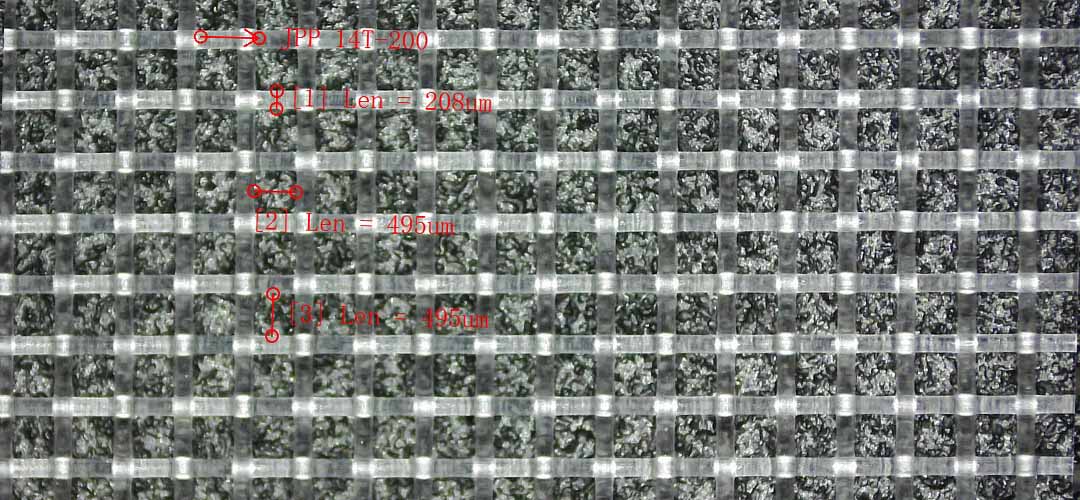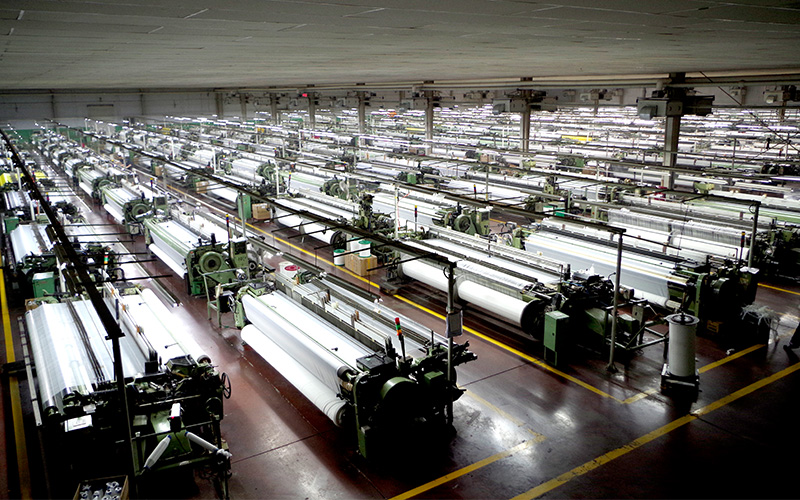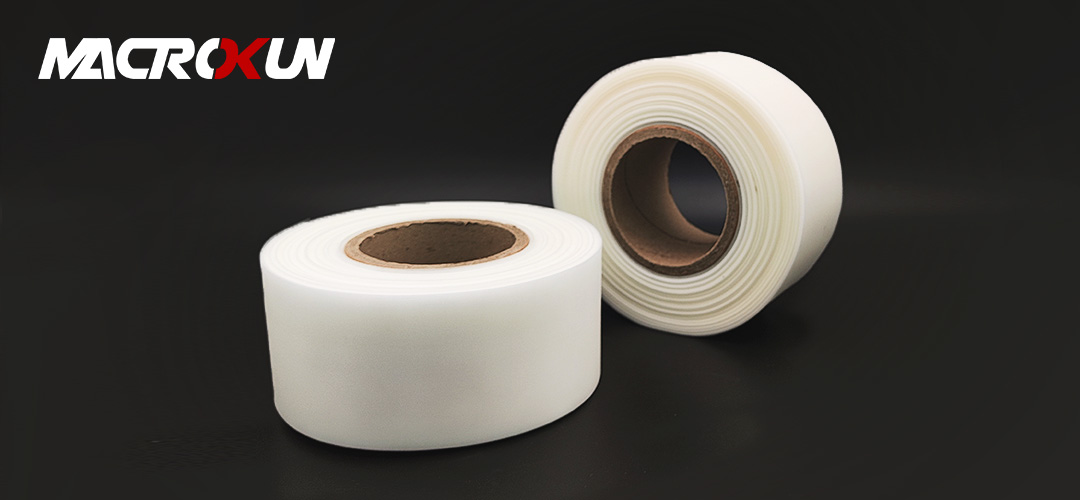Nylon filter mesh is a versatile and effective tool for filtration in a variety of industries. Its unique properties make it an ideal choice for separating solids from liquids or gases, ensuring a clean and pure end product. In this article, we will explore the benefits of using nylon filter mesh for filtration and provide a guide on how to effectively utilize this material in your filtration processes.
One of the key benefits of nylon filter mesh is its durability and strength. Nylon is a synthetic material that is known for its resilience and ability to withstand high temperatures and pressures. This makes it an excellent choice for filtration applications where the filter mesh will be subjected to harsh conditions. Nylon filter mesh is also resistant to chemicals and abrasion, ensuring a long lifespan and consistent performance.

Another advantage of nylon filter mesh is its flexibility and adaptability. Nylon can be easily molded into different shapes and sizes, making it suitable for a wide range of filtration applications. Whether you need a fine mesh for precise filtration or a larger mesh for bulk separation, nylon filter mesh can be customized to meet your specific requirements. This versatility makes nylon filter mesh a cost-effective solution for filtration needs of all sizes.
In addition to its durability and flexibility, nylon filter mesh offers excellent filtration efficiency. The fine mesh size of nylon allows for the effective removal of particles and impurities from liquids or gases, ensuring a clean and pure end product. Nylon filter mesh can capture particles as small as a few microns, making it an ideal choice for industries that require high levels of filtration precision.
Furthermore, nylon filter mesh is easy to clean and maintain, reducing downtime and increasing productivity. Unlike other filter materials that may require frequent replacement or extensive cleaning, nylon filter mesh can be easily rinsed or washed to remove trapped particles and restore its filtration efficiency. This ease of maintenance makes nylon filter mesh a convenient and cost-effective option for filtration processes that require regular cleaning.

To effectively use nylon filter mesh for filtration, it is important to consider the mesh size and configuration that best suits your specific application. Fine mesh sizes are ideal for removing small particles and impurities, while larger mesh sizes are suitable for bulk separation. Additionally, the thickness and density of the nylon filter mesh will impact its filtration efficiency, so it is important to choose the right material for your filtration needs.
When using nylon filter mesh, it is also important to ensure proper installation and maintenance. The filter mesh should be securely fastened in place to prevent leaks or bypass, and regular cleaning and inspection should be conducted to ensure optimal performance. By following these guidelines and utilizing the benefits of nylon filter mesh, you can achieve efficient and effective filtration in your industrial processes.
In conclusion, nylon filter mesh is a valuable tool for filtration in a variety of industries. Its durability, flexibility, and efficiency make it an ideal choice for separating solids from liquids or gases. By understanding the benefits of nylon filter mesh and following best practices for installation and maintenance, you can achieve clean and pure end products in your filtration processes.
Nylon filter mesh is a versatile and effective tool for filtration in a variety of industries, including food and beverage, pharmaceuticals, and water treatment. Proper installation of nylon filter mesh is crucial to ensure optimal performance and longevity. In this guide, we will walk you through the step-by-step process of installing nylon filter mesh to achieve effective filtration.
The first step in installing nylon filter mesh is to select the appropriate mesh size for your specific application. Mesh size refers to the number of openings per inch in the mesh, with smaller numbers indicating larger openings. The mesh size you choose will depend on the size of particles you need to filter out. For example, a smaller mesh size is ideal for filtering out fine particles, while a larger mesh size is suitable for larger particles.
Once you have selected the appropriate mesh size, the next step is to cut the nylon filter mesh to the desired dimensions. Use a sharp pair of scissors or a utility knife to cut the mesh to the required size, ensuring that the edges are clean and straight. It is important to handle the mesh carefully to avoid damaging the material.
After cutting the mesh to size, the next step is to secure the mesh in place using a filter frame or housing. The frame should be sturdy and secure to prevent the mesh from shifting or becoming dislodged during filtration. Carefully place the mesh in the frame, ensuring that it is flat and taut to allow for optimal filtration.
Once the mesh is securely in place, the next step is to connect the filter housing to the filtration system. This may involve attaching hoses or pipes to the housing to allow for the flow of liquid through the filter mesh. It is important to ensure that all connections are tight and secure to prevent leaks or other issues during filtration.
After connecting the filter housing to the filtration system, the final step is to prime the filter mesh. Priming involves running a small amount of liquid through the filter to remove any air bubbles or debris that may be trapped in the mesh. This will ensure that the filter is ready for use and will provide optimal filtration performance.

In conclusion, proper installation of nylon filter mesh is essential for effective filtration in a variety of industries. By following the step-by-step guide outlined in this article, you can ensure that your nylon filter mesh is installed correctly and ready for use. Remember to select the appropriate mesh size, cut the mesh to size, secure it in a filter frame, connect the housing to the filtration system, and prime the filter mesh before use. With proper installation and maintenance, nylon filter mesh can provide reliable and efficient filtration for your specific application.
Nylon filter mesh is a versatile and durable material that is commonly used in a variety of filtration applications. From industrial processes to home brewing, nylon filter mesh is an essential tool for removing impurities and achieving a clean final product. However, in order to ensure the effectiveness and longevity of your nylon filter mesh, proper maintenance and cleaning are crucial.
One of the most important tips for maintaining nylon filter mesh is to regularly inspect it for any signs of wear or damage. Over time, the mesh can become clogged with debris or develop tears and holes that compromise its filtration capabilities. By inspecting the mesh regularly, you can identify any issues early on and take the necessary steps to repair or replace it before it affects the quality of your filtration.
In addition to regular inspections, it is also important to clean your nylon filter mesh after each use. Depending on the type of filtration application, the mesh can become coated with oils, chemicals, or other contaminants that can reduce its effectiveness. To clean the mesh, simply rinse it with warm water and a mild detergent, then allow it to air dry completely before storing it. Avoid using harsh chemicals or abrasive scrubbers, as these can damage the mesh and shorten its lifespan.
Another tip for maintaining nylon filter mesh is to store it properly when not in use. Storing the mesh in a clean, dry environment away from direct sunlight and extreme temperatures can help prevent mold, mildew, and other forms of damage. Additionally, storing the mesh in a protective case or container can help prevent tears and holes from forming during storage.
If you do notice any tears or holes in your nylon filter mesh, it is important to repair them as soon as possible. Small tears can often be repaired with a patch kit or adhesive tape, while larger holes may require more extensive repairs or replacement. By addressing any damage promptly, you can extend the life of your nylon filter mesh and ensure that it continues to provide effective filtration.
Finally, it is important to follow the manufacturer’s guidelines for maintaining and cleaning your nylon filter mesh. Different types of mesh may require different cleaning methods or maintenance routines, so be sure to consult the manufacturer’s instructions for the best results. Additionally, some manufacturers may offer specific cleaning products or tools that are designed to work with their nylon filter mesh, so be sure to take advantage of these resources for optimal performance.
In conclusion, proper maintenance and cleaning are essential for ensuring the effectiveness and longevity of your nylon filter mesh. By regularly inspecting, cleaning, and storing the mesh properly, you can extend its lifespan and continue to achieve clean, high-quality filtration results. Remember to follow the manufacturer’s guidelines and address any damage promptly to keep your nylon filter mesh in top condition for years to come.
Pre: 40 Micron Nylon Mesh: Exceptional Performance for Medium Filtration
Next: Advantages of a DIY Screen Printing Press for Personalized Projects

MACROKUN has established long-term and stable cooperative relations with many transportation companies such as China Post, DHL, FEDEX, USPS, UPS, etc. Of course, MACROKUN can also provide air and sea transportation. The powerful logistics system enables all MACROKUN'S Printing Mesh, Filter Mesh and Filter Bags and so on to be easily and efficiently transported to any place. For quotes and inquiries, please email our sales team.





